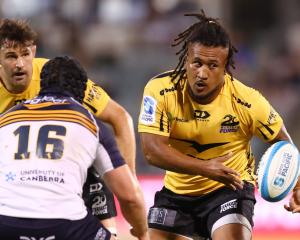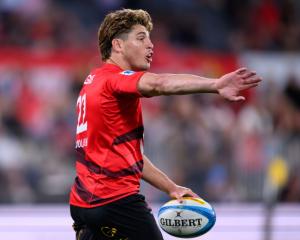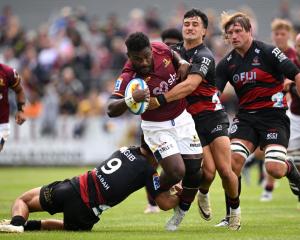Hutt Hospital registered nurse and PhD candidate Doug King has imported microchipped technology from the United States to measure impacts received on the rugby field.
Fairfax Media reported last week King, who previously worked in Dunedin, had obtained the mouthguards through funding to kit out a club side in Wellington.
The mouthguards are fitted with accelerometers and gyros that measure the force on a player's jaw when a big hit occurs.
Combined with a sideline test, it is hoped it will be easier to tell when a player is concussed and has to stand down.
The mouthguards are used in the United States by professional American Football teams.
The sideline test involves players reading single-digit numbers over three pages, a process that can detect impairments of eye movement, attention and language and other symptoms of impaired brain function.
University of Otago associate dean of the School of Physiotherapy Dr Tony Schneiders said the mouthguards were a good tool from a research point of view but their cost probably meant they could not be used in the everyday context.
He said the awareness of concussion and ability to detect it was improving and the changing rules of the games helped.
The introduction of concussion bins in rugby was a way to detect concussion and the New Zealand Rugby Union was treating the issue seriously, working with medical and academic institutions in Auckland to investigate the problem.
''But there is no absolute test for concussion. There are different signs for different people. One person may get one and may collapse as soon as they get back to their feet. Yet someone else may get a concussion and just carry on as normal,'' he said.
He said there was a lot of hype around concussion after the recent deaths of NFL players in the United States. Many of the players' families had donated the players' brains to science to see if their deaths were linked to their neurological changes.
But there was a lot of work to do on the subject, and a lack of reporting was not helping.
''With the mandatory stand-down of three weeks for any concussion in a sport like rugby, many players, of course, are not going to report it, as that will mean you will miss games.''
Technology that could diagnose changes in the brain because of concussion was available, but only overseas and not for the everyday player.












